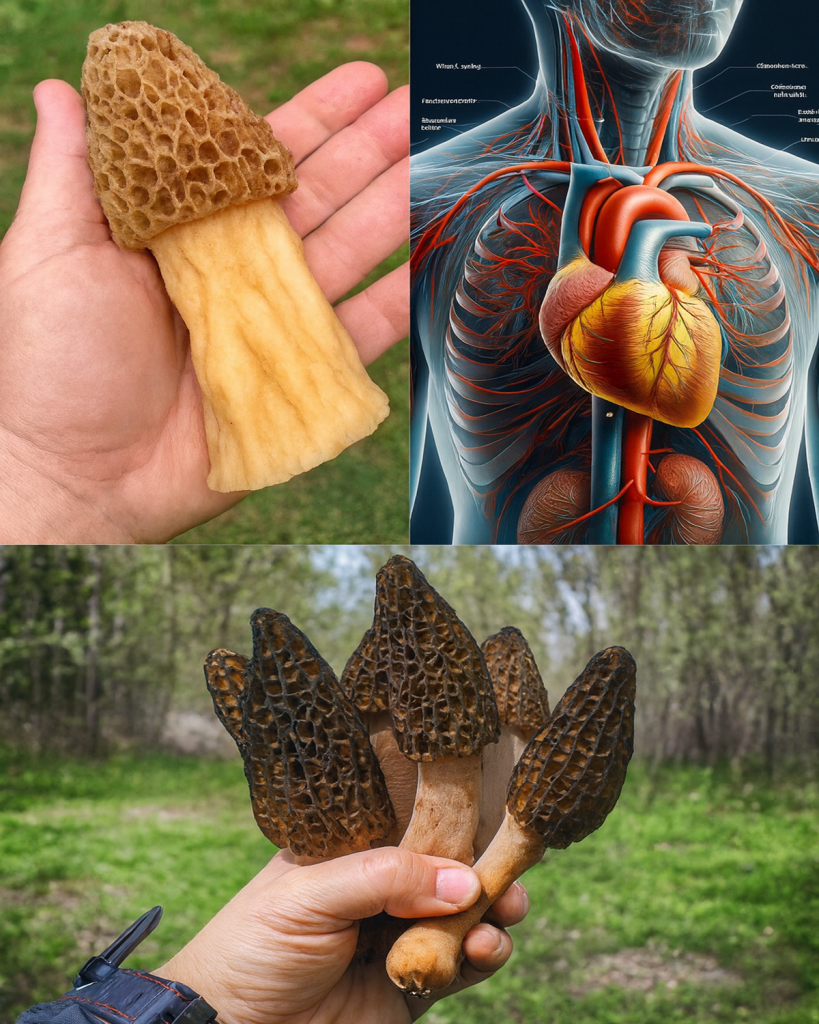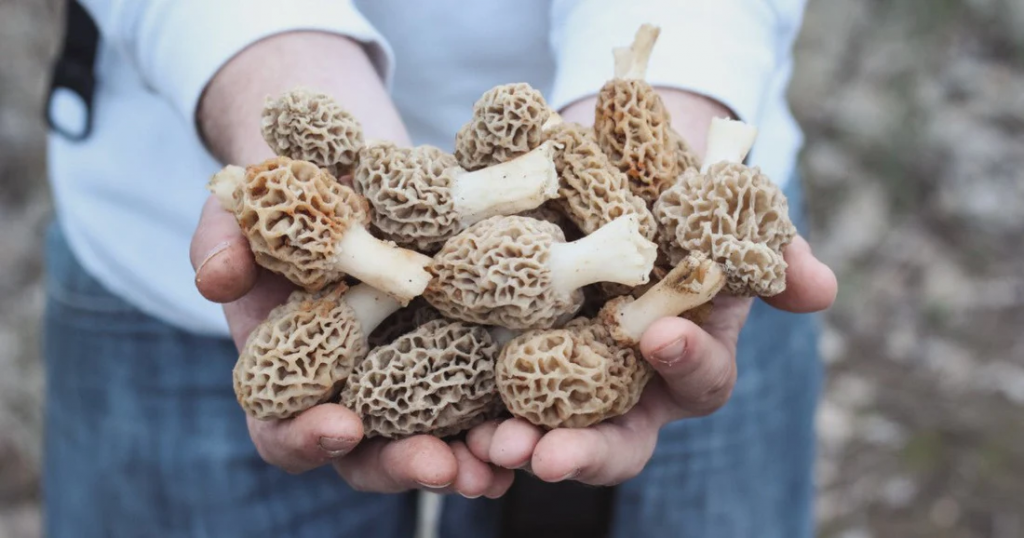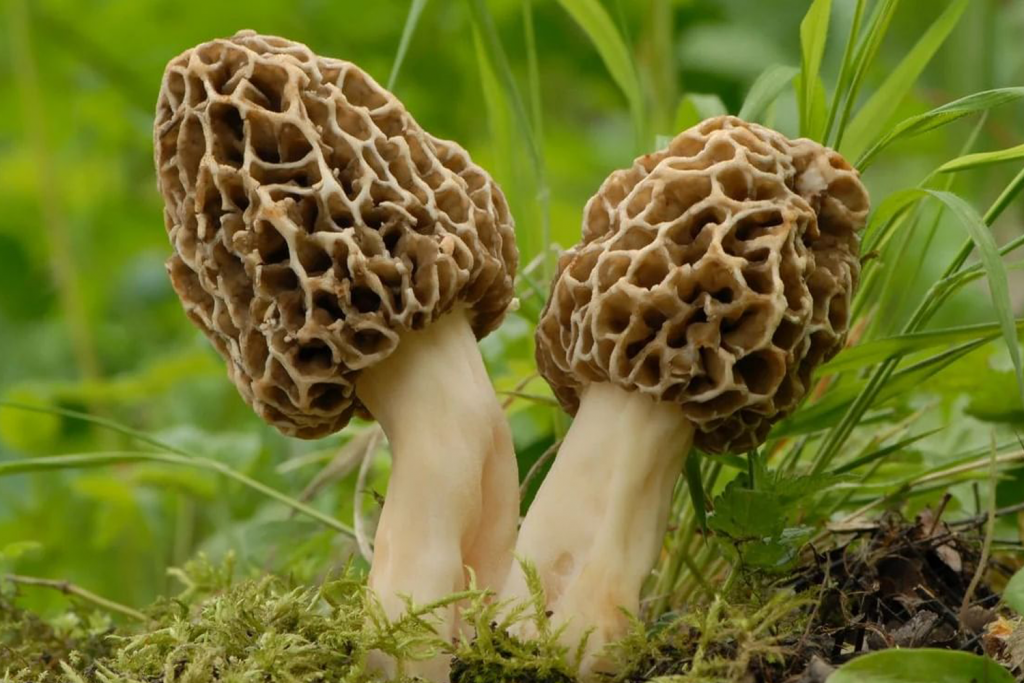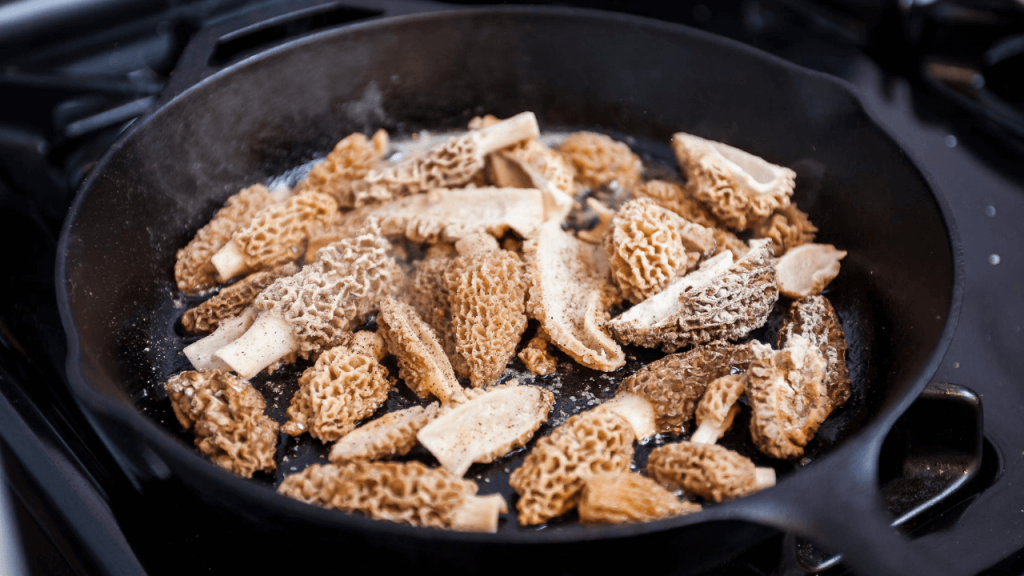What if the mushrooms growing quietly in the forest were worth more than their weight in gold? To most people, they look unusual—honeycombed caps, earthy tones, and a fleeting appearance in spring. But to chefs, health enthusiasts, and traditional healers, morel mushrooms (Morchella spp.) are treasures of immense value. Rare, seasonal, and packed with nutrients, morels fetch astonishing prices on the gourmet market—sometimes $200 to $500 per pound dried. Beyond their culinary fame, they also carry a reputation for boosting immunity, supporting heart health, and fueling overall vitality.
In a world where we spend billions on synthetic supplements and processed superfoods, the idea that something so humble—and so close to home—could offer equal or greater benefits is both exciting and surprising. Could the secret to stronger immunity, better circulation, and long-lasting energy be growing right under your feet in the woods?

Why Morels Are Considered “Gold”
Morels are prized for two main reasons: rarity and nutrient density. They only appear for a short period in spring, making them one of the most elusive mushrooms to forage. Unlike common mushrooms, they cannot be easily cultivated on farms at scale, which drives their exclusivity.
Nutritionally, they are a powerhouse:
- Protein-rich: Contain 3–4 grams per serving, making them ideal for plant-based diets.
- Minerals: High in iron, copper, manganese, and potassium for circulation and energy.
- Vitamin D: A natural source of this essential nutrient for bones and immunity.
- Antioxidants: Help reduce oxidative stress and may support long-term wellness.
These qualities explain why chefs covet them, while herbalists see them as an overlooked natural wonder.
Health Benefits of Morel Mushrooms
1. Immune System Support
The beta-glucans in morels act as natural immune modulators, helping the body better respond to threats while reducing inflammation. People who incorporate them regularly often report fewer seasonal illnesses.

2. Heart and Circulatory Health
Morels’ potassium and copper content supports healthy blood pressure and circulation. Traditional remedies often highlight their ability to “warm the blood” and strengthen cardiovascular resilience.
3. Energy and Vitality
With their unique mix of iron and B vitamins, morels help transport oxygen efficiently, which reduces fatigue and boosts endurance—especially beneficial for people recovering from illness or managing anemia.
4. Liver and Detox Support
Their antioxidants assist the liver in breaking down toxins more effectively. Some holistic practitioners recommend incorporating them into spring diets to align with the body’s natural cleansing cycle.
5. Digestive Balance
Unlike heavy, fatty foods, morels are light yet filling. Their fiber content helps regulate digestion, while their prebiotic compounds feed beneficial gut bacteria.

Everyday Uses and Culinary Magic
Morels are not just medicinal—they’re gourmet ingredients beloved by Michelin-star chefs. Their nutty, earthy flavor pairs beautifully with butter, cream sauces, and fresh spring vegetables.
Cooking Tips:
- Always cook morels thoroughly; raw consumption may cause stomach upset.
- Pair with garlic, leeks, or asparagus for seasonal dishes.
- Dry them to preserve for year-round use, then rehydrate for soups and sauces.
Tea or Infusion:
Some wellness practitioners prepare morel tea by steeping dried mushrooms, claiming it supports circulation and boosts energy.

Case Studies and Real-Life Experiences
Case 1: A man in his 60s with mild hypertension added morel mushrooms to his weekly meals during spring. Within months, he reported more stable energy levels and improved blood pressure readings—though he still relied on prescribed medication.
Case 2: A young woman recovering from fatigue began using morel broth in her diet. She described feeling stronger, less tired, and more focused.
These stories highlight how morels can complement—not replace—medical treatments and modern nutrition.
Quick Health Snapshot
| Benefit | Nutrients Behind It | Best Way to Use |
|---|---|---|
| Immune Support | Beta-glucans, antioxidants | Cooked or tea |
| Heart Health | Potassium, copper, iron | Soups, sautés, stews |
| Energy Boost | Iron, B vitamins | Broth, side dishes |
| Liver Detox | Antioxidants, minerals | Seasonal cleanse recipes |
| Digestive Health | Fiber, prebiotic compounds | Cooked meals, sauces |

Precautions and Safety
- Never confuse morels with false morels—the latter are toxic. Always learn proper identification or purchase from trusted sources.
- Cook before eating: Raw morels can upset the stomach.
- Allergies: Rare but possible; introduce gradually.
- Supplements vs. food: Whole mushrooms are safer and more effective than unverified pills or extracts.
Conclusion: Frequently Asked Questions About Morels
Why are morel mushrooms so expensive?
Because they can’t be easily farmed and only grow for a short time in the wild each year.
Are they safe for everyone?
Yes, if cooked properly and consumed in moderation. People with mushroom allergies should avoid them.
Can morels cure diseases?
No. They may support overall wellness, but they are not a replacement for professional medical treatment.
*Disclaimer: This article is for informational purposes only and does not replace medical advice. Always consult a healthcare provider before making significant dietary changes.




